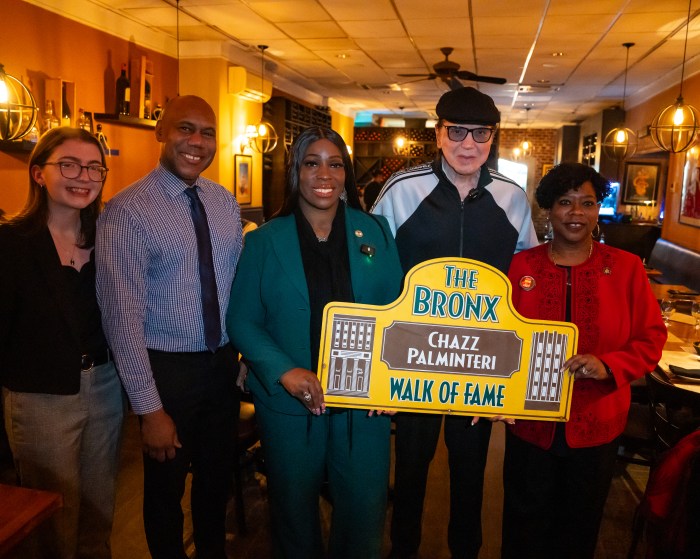How is it possible for born hustlers, with expertise, and skills to lack entrepreneurial experience?
The idea seems so farfetched it is easy to pass it off as a figment of the imagination of a sleep deprived, overpaid guy in academia. One whose Caribbean lies northwest of Madagascar.
Yet the following sentence is a popular chorus in academic literature.
“Caribbean immigrant entrepreneurs in OECD Countries such as Canada, the USA, and the UK have less entrepreneurial experience than immigrants from places such as the Mediterranean, Asia, and Europe”.
Should we even bother to waste our time on that vexing argument?
Personally, I don’t blame the masses within the Caribbean community who are not buying that argument.
Though the argument may look like it cannot hold water, it is well worth our time to pay close attention to what is being said. Winston Churchill once said, “The greatest lesson in life is to know that even fools are right sometimes.” If our intent is to create and grow businesses that will catapult our communities on a path of accelerated social and economic mobility (in all the Caribbean’s diasporic markets), then we must make time to pick sense from nonsense. We must heed what is being said, if we aim to make our mark on the business landscape of our adopted homelands; and in such a way that Caribbean and black is seen as the colour of entrepreneurship. And ethnic Caribbean businesses are synonymous with mainstream think when it comes to business and entrepreneurship.
Going forward it is for you to decide how much sense is in the nonsense that I’ll share.
One crucial area in which we lag has to do with how we strike or fail to strike the balance between building business relationships, mining out and seizing market opportunities. It sneaks up on us like the wife who takes home her newborn, gets caught up in loving and nurturing the baby, to the extent that her husband becomes a forgotten love, leading to the death of their relationship. Similarly, as entrepreneurs we often become doting mothers of the product or service we brought forth. At times, even leaping to refine it based on our love rather than on customer and market feedback.
Our extended community family is not too concerned with helping the new entrepreneur to find markets or opportunities. They often play wait and see. Clients will call and deliver testimonials worthy of worship, but they will never provide a customer reference or testimonial on social media or at a business event. That kind of thing is reserved for “big name companies” ―for which dropping a name is a significant personal statement.
There is also that dash of known salt in the experience wound, many of our entrepreneurs do not come from households where families ran businesses through which they have created networks with deep pockets, or cultivated social capital that can be used to influence the purchase decision. “The Jamaican Community in Canada,” 2007 Report by Statistic Canada reveals that only 6 percent of Jamaicans were self-employed compared to 12 percent of “their counterparts in the rest of the population.” Experience comes from doing, and Jamaicans account for the largest population of Caribbean immigrants in three of the region’s largest destination countries.
The perceived colour of the entrepreneur hints at experience, and must not be overlooked. In many OECD countries the colour of entrepreneurship is not black or coloured. Bank tellers and customers are not quite sure if the person of colour in the business line is there to do business or to get ahead of others. Buyers of high-priced services are weary about the ability of the entrepreneur to deliver the service based on their “foreignness” so they need more to be convinced.
Caribbeans can be iffy about the likely success of a new business; so, they’ll shy away from identifying with or promoting it. It is easy to see from the examples above that lack of entrepreneurial experience has to do with entrepreneur know-how and focus, built over generations, networks, relationships, and community support. Lack of confidence, and trust lies at the root of lukewarm or missing community support; and is caused by lack of experience.
Creeping to galloping decline in quality and customer service are twin problems. For example, a visit to our restaurants on Yelp or other reviewed listings churns up the common complaint, “inconsistency in the quality or taste of dishes from one visit to the other, and poor customer service” (The two-headed Godzilla). Those minuses erode trust, damage the image of Caribbean entrepreneurs, and storms unbridled in firing individual business owners as well as other aspiring entrepreneurs.
Financing our businesses, entrepreneurs and community miss creative ways of financing businesses. Many other groups finance through small contributions in exchange for a small share in the business; or dedicated systems for providing investment. We use our “partner savings” scheme for financing more non-productive assets than for financing start-ups and productive assets compared to other groups. There is a missing eye, nose, and appetite for finding and investing in new businesses. The time for bridging that gap is now!
Sparse networks hamper our ability to conduct market research, and to accelerate sales in local and export markets. We struggle to sell high-priced, high value services. Yet we have a vast Diaspora that spans continents. If not lack of experience, what else is preventing us from connecting and leveraging our Diaspora markets and networks to overcome real and perceived barriers related to “foreignness,” and the “ethnic minority Caribbean,” which is black in most cases?
Let us not focus on perceptions; let us not be too quick to dismiss a vexing argument, instead let us use the sense within the nonsense to devise actions to quickly grow our entrepreneurial experience. If we fail to act fast, we stand to lose much of the little we barely have. Caribbean immigrant communities will remain behind in social and economic development and suffer the scorn and wrath of the labels “economic burden” and “low demand demographic”; home countries will suffer from shortfalls in remittances and FDI; Cities will lose out on expected taxes, innovation, and increases in employment. We need more high-performing businesses to hire more from our communities given we are not the preferred at the hiring table.
The lack of entrepreneurial experience is a weakness shared by not just our entrepreneurs but also the wider Caribbean Immigrant Community. So, what is holding us back from engaging in action learning, and creating a Diaspora market space, where entrepreneurs can learn the ropes from others, learn how to prepare for the feast and the famine (Or better yet to avoid the famine); and to bring connectors, and influencers together for improving our social and economic outcomes?
Clearly the answer lies in a lack of awareness of the situation and lack of experience in how-to. But, lack of experience should not be a hindrance; Usain Bolt had to run the 100 m to gain experience though he came with athletic talent in his DNA.
Changing that argument lies in what you and I will do about the experience gap. I place my bet on the Community of Practice (CoP) for Caribbean Immigrant Entrepreneurs. What will you do about it?
About the author: Meegan Scott, B.Sc. Hons, MBA, ATM-B, CL, PMP., is Jamaica-born Strategic Management Consultant, at Magate Wildhorse Ltd in Toronto. This is a syndicated article.



























